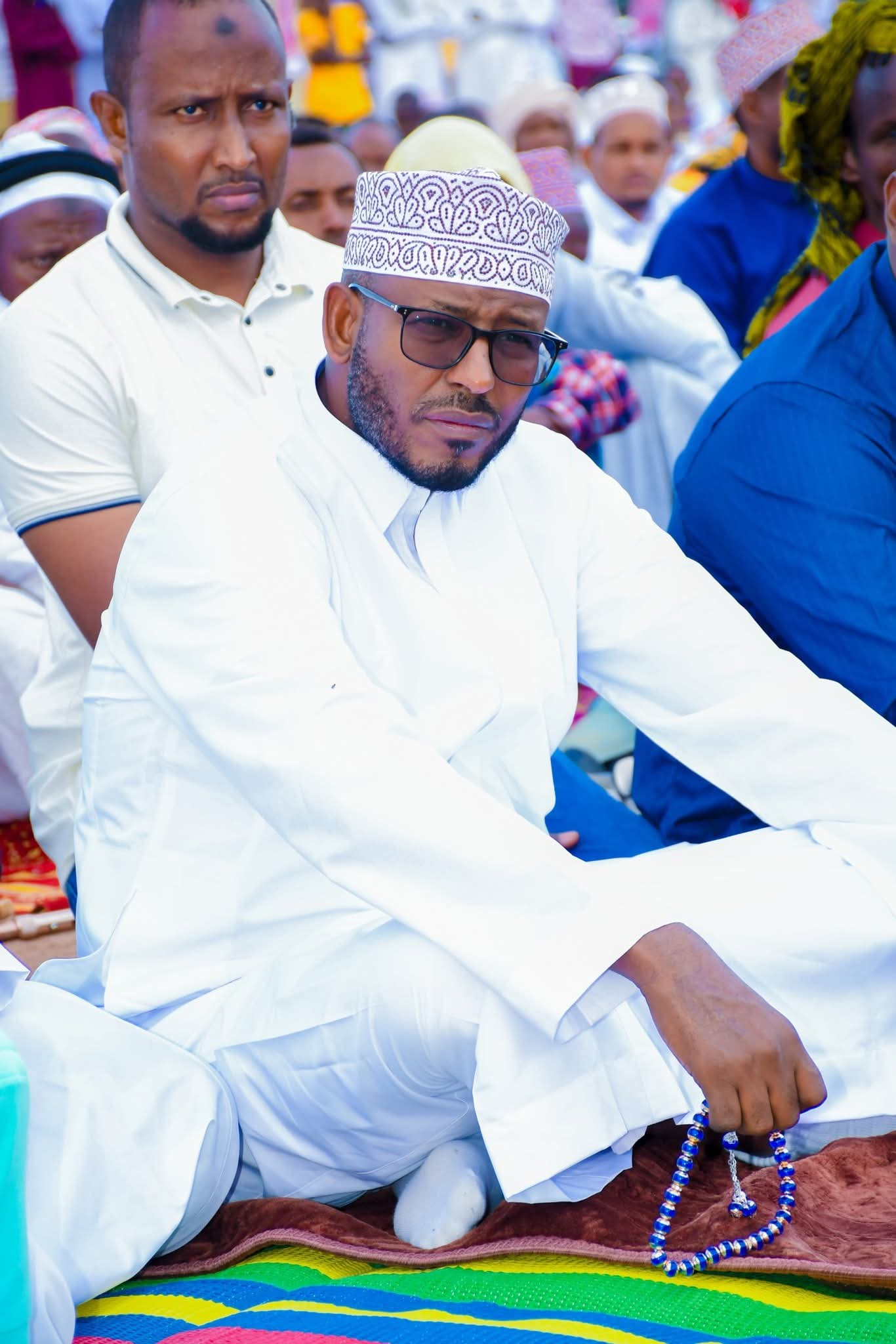Wajir Governor urges parents to shield youth from illegal migration and drug abuse

Speaking at the Orahey Grounds in Wajir town after Eid al-Adha prayers on Friday, the governor noted the growing dangers facing young people and called for urgent collective action.
Wajir Governor Ahmed Abdullahi has appealed to parents and community leaders to take a stronger stand against Tahrib and rising drug abuse among youth in the region.
Speaking at the Orahey Grounds in Wajir town after Eid al-Adha prayers on Friday, the governor noted the growing dangers facing young people and called for urgent collective action.
Governor Abdullahi expressed alarm over the increasing cases of ''Tahrib''—a term locally used to describe the illegal and often perilous migration of young people across borders in search of better opportunities abroad.
While many are lured by promises of jobs and education in the Gulf and Europe, the reality, he said, often involves exploitation, abuse, and in some tragic cases, death.
“Our children are our future. We cannot sit back and watch them risk their lives for illusions of a better life overseas,” said Governor Abdullahi.
“I urge all parents to talk to their children, guide them, and warn them about the dangers of Tahrib. It is a trap not solution,” he added.
He said dozens of young people from Wajir and neighboring counties attempt to cross into Ethiopia, Uganda and Sudan every month, hoping to eventually reach Gulf nations or Europe.
Many fall prey to human traffickers, end up stranded without legal status and suffer mistreatment far from home.
Governor Abdullahi noted that the county government, in partnership with national agencies, is working to create local opportunities through vocational training, small business support, and youth empowerment initiatives.
However, he stressed that real and lasting change must start at home, with families and communities taking the lead in guiding and supporting the youth.
“We must open our homes and hearts to our children, listen to their frustrations, and provide them with hope here at home,” he told Muslims at the gathering.
The governor also used his Eid address to raise concern over the rising threat of drug and substance abuse in Wajir County.
He warned that the region is experiencing alarming increases in the use of khat, cannabis, and even hard drugs like cocaine and heroin.
“The misuse of substances like marijuana, khat, and even hard drugs is emerging as a major public health crisis in Wajir,” said Governor Abdullahi. “We must act now to protect our youth from falling deeper into addiction.”
The 2022 National Survey on the Status of Drugs and Substance Use in Kenya (DSU) report revealed that khat use in the North Eastern region stands at 7.2%.
The DSU found the abuse of the drug was significantly higher than the national average and is attributed largely due to cultural acceptance and economic reliance on its trade.
The survey also found that 1 in every 125 youths aged 15–24 in the region shows signs of khat addiction, a trend the governor described as deeply troubling.
The report further noted strong links between substance abuse and mental health challenges. With limited access to treatment and rehabilitation services in Northern Kenya, many users remain trapped in cycles of dependency.
The survey indicated that 22.2% of khat users and 47.4% of cannabis users in the region exhibit signs of addiction.
Governor Ahmed Abdullahi urged community-based efforts to counter misinformation among youth, especially concerning the perceived harmlessness of substances like cannabis and khat.
“Expanding access to mental health and addiction treatment services, including through mobile health clinics, is crucial,” he said.
“We must also invest in youth education, raise awareness, and strengthen cross-border law enforcement to tackle the roots of this crisis,” said the governor.
The Eid prayers at Orahey Grounds were attended by hundreds of residents and local leaders, providing a solemn yet hopeful space for reflection on the challenges and opportunities ahead.
“Let this Eid be a turning point. Let us resolve to guide our youth, invest in their dreams, and keep them safe from harm. Together, we can defeat Tahrib, curb drug abuse, and build a brighter future for Wajir,” he said.
